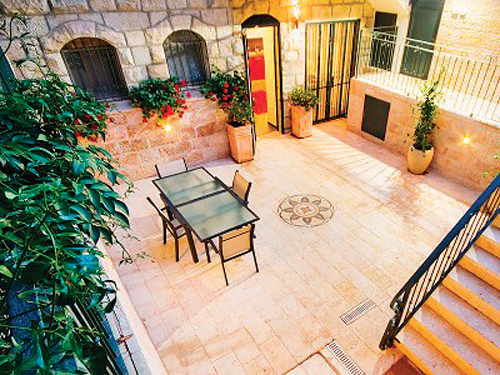.jpg)
.jpg)
.jpg)
My friend recently asked me to help him purchase an apartment in Israel as an investment. David wanted to diversify his portfolio, which had been comprised of stocks, bonds and U.S. real estate.
Goals
As David lives in New Jersey and therefore won’t be a “hands-on” owner, he wanted to acquire an apartment in good condition that would be easy to rent out. I suggested buying in a large population center, as demand for rentals in such markets tends to outstrip supply, limiting the possibility of the apartment sitting vacant for an extended period of time.
In addition to the rental apartment generating an income stream, another important consideration for David was “capital appreciation,” which means the potential for the market to rise and the profit he can achieve when selling the apartment in the future.
Where
We decided to concentrate on the densely populated central Jerusalem market, thus ensuring that the rental unit would always be in high demand. In addition, acquiring an apartment in a well-developed area with few additional development opportunities guarantees that when David decides to sell his apartment, there will be limited available supply, ensuring strong demand and a full sale price.
What
We determined that the best “bang for the buck” was to buy an apartment “on paper” in a new complex being built in Baka by an experienced developer, which offered top quality construction and lovely green parks bordering the property. Located across the street from the project is a recently completed residential complex whose apartments are selling for up to 40,000 NIS per square meter (sqm). Because the new project is two years from completion, we were able to cut a deal significantly below 30,000 NIS per sqm plus closing costs. Although the return (rental income) on such an apartment is not particularly wonderful – about 3% per year – the expected capital appreciation is significant: the apartment’s value upon completion is anticipated to be at least 40,000 NIS per sqm, translating into a 30%+ increase above my client’s purchase price.
Size
Purchasers of investment properties often buy smaller apartments, as one- and two-bedroom rental units are always in demand plus they generate steady returns. However, David had the budget to acquire a larger unit and was vacillating between purchasing a three or four bedroom apartment. My colleague, Eric Gluch, a highly regarded agent in Ra’anana, sent me an essay he penned analyzing the ideal-sized rental apartment. When comparing three- and four-bedroom apartments, he recommends purchasing the smaller-sized units due to their broad market appeal. In general, four-bedroom rental units are requested by families with three or more children. However, three-bedroom units can accommodate a greater spectrum of potential tenants, ranging from young families to retired couples who enjoy having a spare room to use as an office, den or guest room. In addition, an apartment with less people tends to endure less “wear and tear” and the maintenance costs are usually lower.
After considering all of the issues discussed above, David decided to buy a three-bedroom apartment “on paper” in Baka. He was excited to gain a foothold in Israel, and we were honored to guide him through the acquisition process.
Gedaliah Borvick is the founder of My Israel Home, a real estate agency focused on helping people from abroad buy and sell homes in Israel. To sign up for his monthly market updates, contact him at gborvick_gmail.com. Please visit his blog at www.myisraelhome.com.
By Gedaliah Borvick










